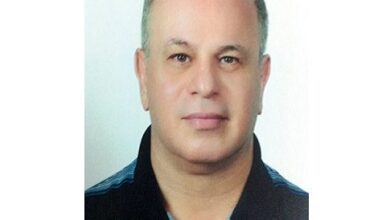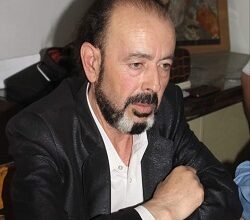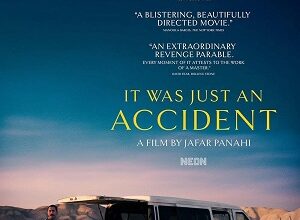English translation of HRH Prince El Hassan bin Talal’s interview with L’Orient Le

Q- What are in your opinion the consequences of the transfer of the US embassy to Jerusalem
A – In terms of the legality of the actions taken, I think that the subsequent conferences , whether Arab foreign ministers or Muslim heads of states, have made it clear that they reject this step in legal terms and of course we have always known that in terms of Jerusalem there are two processes, one is the cultural process which recognizes the Holy City in terms of management of the Holy space and then there is the diplomatic process which one would have hoped would not prejudice the action in itself of the establishment of the American embassy
We have made it very clear to our American friends that this would hinder the peace process and the action speaks volumes about the place of the US in the world. Today we are seeing a real and dangerous retreat from any pretense of multilateralism, from belief in international rules based order
As Jordanians, we are concerned about the dangerous implications and destabilizing consequences. Jerusalem is a holy city with which we have a long history and we continue to remind the world that Jerusalem is integral to peace in that sense it summarizes all of the negotiating processes that we would hope could be advocated, including of course the elephant in the room, the importance
and significance of the independent Palestine state with east Jerusalem as its capital
Q – Do you think the US have lost their status of honest broker in the peace negotiations? Is a negotiated settlement in the Middle East still possible
A – I think that in terms of an optic of equilibrium, the US perspective is clearly one on regional strategic trade offs: on the one side you have the question of Palestine and on the other you have the question of Iran, and the United States continues to choose to suggest that the next enemy in the region is Iran
Of course in terms of the timing of the announcement, if there is to be an announcement of the “package of the century” as it is known in this region, how can this announcement be made when people are losing all hope for a better future and giving in to the cynicism of realpolitik. Basically that is how the confrontation between KSA and GCC and Iran are seen, they are seen in the context of binary pathologies and silo thinking.
When we speak about the future of the region I would have thought that in terms we the people at the very least the US would consider that the question of security is not only weapons of mass destruction and countering terrorism but also building regional institutions and fostering regional intra-independence. I think that focusing on regional commons, essentially human dignity, is one way of bringing the people back to their role as citizens of the region rather than continuing to see this polarity being played out. We have a situation of polarity vs. plurality.
Q – Can you elaborate on the package of the century? We heard a lot in the media but nobody still knows about it
A – I think the fact to be honest with you nobody has any details of the package of the century; it has been mentioned and we are supposed to assume that maybe the leaning towards Israel in terms of the visit by American officials and the announcement of the embassy opening wants to prove to the Israeli leadership beyond shadow that the US is on their side. But the question also remains that will the US then take a position over area C in terms of the areas over which the
responsibility lies with the Palestinians or would the leadership in Israel succumb to the right wing pressures to even annex or continue the settlement building in area C
So I do think this is the crucial issue but I would like to reiterate that economic development for the West bank is vital but will not replace any political solution
Our commitment in this equation is that in term of the eastern window on the West Bank which is Jordan we would like to be vital in our commitment to both the Palestinian people and to the Jordanian people, so it is a little bit worrisome to think that Gulf assistance to both Jordan and the UNRWA (which is largely American assistance) is being curtailed for American Palestinian reasons, but at the same time I don’t think that the curtailing of this assistance/funding is without consequences and I think that the consequences should be that the US looks for the Arabs to commit themselves to a regional intra-independent commitment to building the stability of the Mashreq region
No single country in this region can solve its problems on its own economically and crisis do not read maps; water does not read maps and I think that the time has come to recognize that the demographic tsunami in the region is going to be within less than ten years a cause for an outbreak of violence of unprecedented scale unless we are deliberate in our attempts to stabilize the region
Q – Can you elaborate on the demographic tsunami and do you think our only prospect in the region is more violence for the years to come
A – My country has increased by 87 % in population since the early 1990’s, so where as we talk about 5.2 million we are approaching the ten million mark. In terms of the World Bank and the IMF Bretton woods if we are to talk about our refugees’ responsibility, normally this is rejected in terms of political economy. But given the recent joint reports between the United nations and the bank and the fund, called “Paths to Peace” there seems to be a coming together between the UN and these international agencies to recognize the importance of the destabilizing effect of 4,7 million Syrian refugees in Turkey, Lebanon and Jordan
I think the problem in the region is that you have as in Syria for example over 32 militias running zones of influence and with each cleaning up operation in Damascus there is a movement of refugees not least of all of Yarmouk Palestinian refugees into other parts of the region
Nobody is yet talking about a regional human demographic knowledge base whereby we can talk of relating the post conflict reconstruction to not repeating the mistakes of the past, and to building policies which bring attention to conflict prevention by investing in human dignity and creating jobs as well as making conflict resolution more realistic with a holistic way of thinking about governance and the state of our region, our Mashreq or Levant region
Q – How do you see the future of Syria
A – I see the future in terms of Turkey, Iran and Russia on the one hand, and in terms of the European and American west on the other: take the meetings in Sochi, it is astonishing that they are taking place without the participation of Syria itself or certainly the Syrian opposition which do not seem to get to participate on regular terms in Sochi and Astana
As far as the Geneva process is concerned there is no thinking about post conflict resolution, the regime seems to carry on as it were and ensuring a wider and wider area of security by force of arms
But again the question of the reconstruction of Syria is fraught with danger, as I say the Iran Arab confrontation and the proximity of Iranians and Hezbollah to the Israeli border make people ask the question on a regular basis, is there going to be war in the near future? An Israeli general in last few days repeated that the fear that what we are facing is similar to May 1967
I think all of this is well founded and not just emotional. No one is talking on how are the Arabs are going to survive in this region with the other pillars of the stability of the region (Kurds, Turks and Persians) without a regional perception. But I don’t see that waging peace is a concept that is looking promising in this region.
How do we look at Syria which after had the most pluralist agenda and a constitution drawn up by my great uncle King Faisal of Syria as a country that can survive on the basis of internal dynamic if they are throwing away that dynamic based on pluralism and throwing mutual respect out of the window and going for smaller and smaller polarity. The reconstruction of Syria is not just a World Bank delegation coming out and finding the money to build projects these projects have to be within a context of developing a stable Mashreq region.
Q – How is the conflict between Iran and many Arab countries, led by Saudi Arabia, affecting relations between Sunnis and Shias
A – I honestly think that the Sunni Shia conflict has nothing to do with religion, they have nothing to do with Islam, they have more to do with ethnology, in terms of Iranians versus Arabs, in terms of zones of influence, in terms of interference, and each side blames the other
When will we have a conversation between Muslims that develops altruism and philanthropy and intellectual generosity towards the other? We have to engage in conflict preventing conversations. I don’t see how any form of bilateral bitterness justifies ignoring the fact that we are not applying ourselves to political solutions through dialogue.
Q – Can you as a Hashemite play a role in this dialogue
A – As a human being I have been trying to play a role for the past four or five decades of my life in trying to emphasize areas of congruence and convergence as opposed to divergence
Of course this would mean appealing to both Qom and Najaf in terms of their religious and spiritual authorities on one side, and appealing to Mecca and Medina on the other, not to mention Jerusalem itself. So I would be absolutely full of goodwill to such an initiative provided there is a commitment not to mix nationalism with religion, not to mix the latent hatred that results for example from the Yemen war or activities in Syria and so forth with the fact that the exception has been this dissonance between Arabs and Muslims or Muslims and Muslims for centuries.
Q – Do you think anything can be to reassure the Christians of the Middle East, especially after the trauma caused by Daech, and stop the flow of emigration
A – As a defender of Muslim Christian dialogue, I agree that we must ensure that all the people can live a life of dignity and it is essential that we promote inclusive
citizenship for all with no discrimination between Christians and Muslims or any of the ethnicities present in our Arab region. This is not necessarily in terms of ID papers but in terms of shared sense of rights and responsibilities of all people of all faiths in the region
I think Daech is a movement not an organization, it reminds me of the Qaramita in the early years of Islam and pre-Islam, there will always be a nihilist movement and this is in contrast to the absence of stability in region building
Today this is the real worry, that the proxy wars have taken the initiative at the expense of regional equations of human dignity or the possibility of looking for a future where there is no justification for killings. No wonder people are extremely uncomfortable, and the migrant formula is becoming more appealing; and don’t forget the West is also luring the best and the brightest people from our region, whether Christians or Muslims.
L’Orient Le Jour/Lebanon




